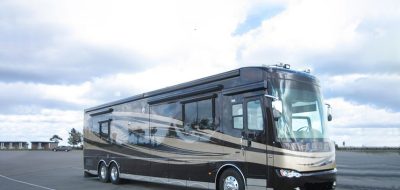 At first blush eco friendly RVing may sound like an oxymoron. Of course, just by choosing to RV rather than flying to your destination you are being more eco friendly and when you factor in the average cost per passenger per mile you are doing even better on energy effectiveness. If you’re living in an RV, you’re using far less fossil fuels each day than living in a house. Let’s look at some things you can do to minimize that environmental footprint even more.
At first blush eco friendly RVing may sound like an oxymoron. Of course, just by choosing to RV rather than flying to your destination you are being more eco friendly and when you factor in the average cost per passenger per mile you are doing even better on energy effectiveness. If you’re living in an RV, you’re using far less fossil fuels each day than living in a house. Let’s look at some things you can do to minimize that environmental footprint even more.
Before You Go
You want all your engines tuned and operating as efficiently as possible. Make sure all tires are properly inflated. Ensuring your air filter is clean is a simple and inexpensive way to increase fuel mileage by 10%.
You probably have seen a lot more solar panels in camp the last few years. Industry studies indicate, as many as one in five RVers employ some type of solar panel. Solar panels are essentially battery chargers that get their power free from the sun. They can be as simple as a dinner-plate sized unit that provides trickle power to batteries or a standard 100 square-foot size panel that can store up to 100 watts of power for dry camping when you need it. Learn all about DIY RV Solar power. Fortunately, Camping World offers a host of eco friendly solar-powered products to enhance your RV travels.
Another “free” tip, only take along what you know you are going to use. When eco friendly RVing, every extra is pound requires additional energy to move.
Use cruise control whenever you hit a stretch of flat road and take advantage of overdrive when you have the chance. Both measures make your engine work less. Also, gas mileage at 65mph is incrementally better than at 75mph.
In Camp
Once you reach the campground, common sense and eco friendly RVing go hand in hand. Always choose a marked RV campsite rather than imposing on nature. During winter, find a spot with as much sun as possible and away from chilling winds. During summer, seek shade to help with the cooling.
You may be used to eco friendly living at home and similar recycling practices can be applied in most campgrounds. Keep trash to a minimum by using washable everything and always use non-toxic cleaning supplies. Burn nothing that is detrimental to the environment. Nothing helps the planet like water conservation. Keep showers short and don’t leave the water running while brushing teeth. And invest in low-flow faucets. Spread gray water around rather than pouring it in one place.
There is nothing mentioned here that costs much extra money. In fact, eco friendly RVing should be considered standard RVing.







Newby Fun Resorts
Eco-friendly RVing will typically save you money in the long run, even if start-up costs are a little higher.
As RVers, we are connoisseurs of nature, so we must protect it!